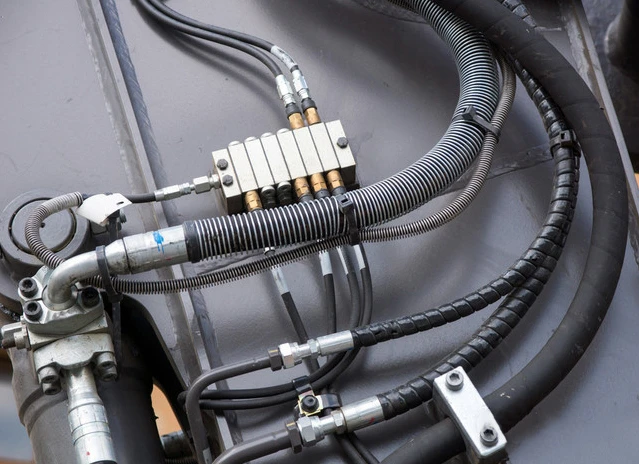Hydraulic Hose Factory Ensuring Quality and Performance in Fluid Power Systems
In the world of industrial operations, where machinery and equipment rely heavily on fluid power systems, the demand for hydraulic hoses has become increasingly significant. A hydraulic hose factory plays a critical role in providing high-quality hoses that are essential for the efficiency and safety of various applications. Understanding the manufacturing process and the importance of these hoses can help businesses make informed decisions regarding their hydraulic systems.
The Importance of Hydraulic Hoses
Hydraulic hoses are flexible tubes that transport hydraulic fluids in pressurized systems used in heavy machinery, construction equipment, and manufacturing processes. These hoses are designed to withstand high pressures and temperatures while maintaining their integrity over time. The performance of hydraulic systems largely depends on the quality of the hoses used, which is why sourcing them from a reputable hydraulic hose factory is vital.
Manufacturing Process in a Hydraulic Hose Factory
The manufacturing process of hydraulic hoses involves several key steps. It begins with the selection of raw materials, which typically include a combination of synthetic rubber and textile or steel reinforcements. These materials are carefully chosen based on the specific requirements of the hoses, such as flexibility, strength, and resistance to abrasion and pressure.
1. Extrusion The first step in the manufacturing process is extrusion, where the rubber compounds are heated and forced through a die to create a continuous tube. This tube befits the size and specifications required for various hydraulic applications.
2. Reinforcement After extrusion, the hose is reinforced with layers of textile or wire mesh. This reinforcement is crucial as it helps the hose withstand the high pressures exerted by the hydraulic fluids. Depending on the application, different types of reinforcement can be used, such as braided steel wire or spiraled textile yarns, to enhance the strength and flexibility of the hose.
3. Covering Once reinforced, the hose is coated with an outer layer of rubber. This covering serves as a barrier against environmental elements like UV rays, oil, and chemicals, ensuring that the hose remains intact during its lifespan. The thickness and type of the cover can vary based on the intended use of the hose.
hydraulic hose factory

4. Curing The final stage in manufacturing involves curing, where the assembled hose undergoes a heating process. This step is essential for achieving the desired properties, such as elasticity and durability, by enabling the rubber to set into its final form.
Quality Control Measures
Quality control is paramount in a hydraulic hose factory. Throughout the manufacturing process, hoses undergo rigorous testing to ensure they meet industry standards and specifications. This includes pressure tests, burst tests, and flexibility tests. By adhering to stringent quality control measures, manufacturers can guarantee that their hydraulic hoses will perform reliably in demanding conditions.
Innovations in Hydraulic Hose Technology
As technology advances, so does the manufacturing process for hydraulic hoses. Modern hydraulic hose factories are increasingly integrating automation and smart technologies to enhance production efficiency and consistency. Innovations such as computer-controlled machinery and real-time monitoring systems help streamline the manufacturing process, reducing waste and ensuring precision.
Additionally, manufacturers are developing hoses that can withstand extreme conditions, such as those found in high-temperature or corrosive environments. The use of advanced materials and engineering techniques allows for the production of hoses that offer superior performance and longevity.
Conclusion
A hydraulic hose factory is essential in supplying the critical components needed for fluid power systems across various industries. By prioritizing quality, innovation, and efficiency in their manufacturing processes, these factories ensure that hydraulic hoses perform reliably under pressure. For businesses that rely on hydraulic systems, investing in top-quality hoses from reputable manufacturers is key to maintaining operational efficiency and safety. Whether in construction, agriculture, or manufacturing, the role of hydraulic hoses cannot be overstated—they are the unsung heroes of modern industrial applications.
Product Application





















